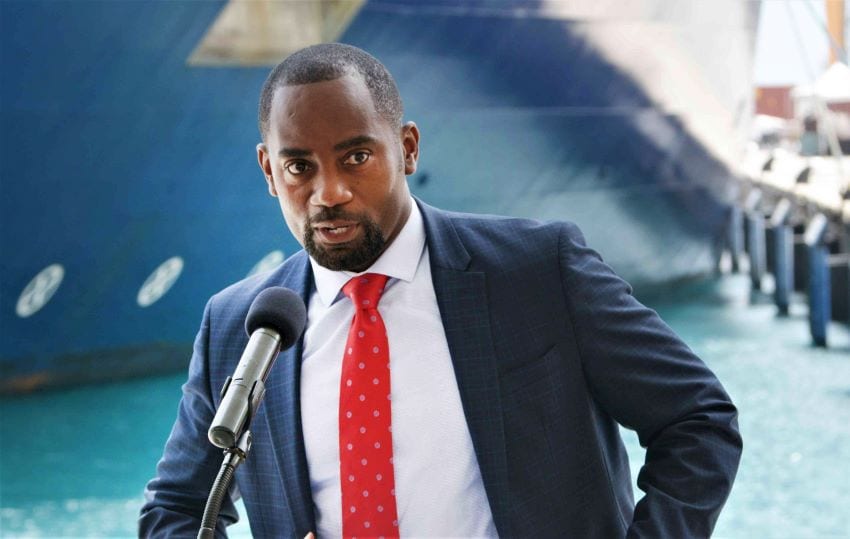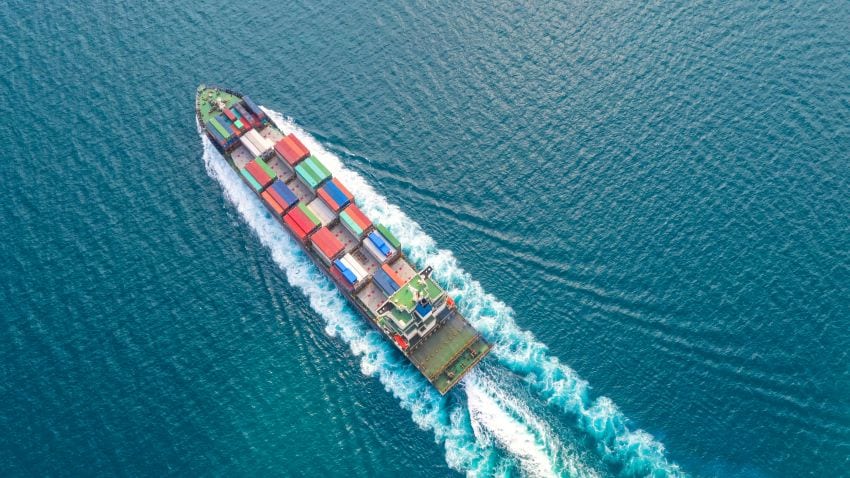
Today, I wish to join with fellow Barbadians and the global community in celebrating the significant contribution that seafarers have made to the development of Barbados and the world economy. The theme “Fair Future for Seafarers” chosen for this year’s celebration is particularly relevant in light of the extraordinary circumstances seafarers have found themselves in as a result of the COVID-19 pandemic.
2021 has been another turbulent and unprecedented period of uncertainty for seafarers. In the wake of the ongoing pandemic, seafarers found themselves both on the front line of the global response and subject to difficult working conditions surrounding uncertainties around port access, re-supply, crew changeovers and repatriation. Having seafarers onboard for long periods, especially when their contractual arrangements have expired impacts on their psychological health.
In the past, seafarers would pack their bags and leave their families behind, but would join another family. This new family was their crewmates and the ship was home. Today however, things have changed – the latest Seafarers Happiness Index “shows that seafarers are feeling more isolated and that the social cohesion onboard is rapidly falling away.
Seafarers are leaving their families and are taking on many challenges alone and without the usual social support, camaraderie and networks to help them excel and succeed.” According to the International Labour Organisation (ILO) the recognition of seafarers as “key workers” is often being neglected, adding challenges to their regular occupational safety and health issues.
The work of seafarers during the COVID-19 pandemic has been critical to ensure the global supply chain of essential goods and equipment. However, the treatment of our seafarers – key workers – on whom the world depends for global trade, without whom supply to food chains would grind to a sudden halt and without whom our shelves and pantries would be bare of the necessary commodities has fallen short.
Barbados has sought during this pandemic to bring a balanced approach of safety, protection, compassion and fairness to those working in the maritime sector. Barbados, at the start of the COVID-19 pandemic and at a time when many ports around the world were closed, was able to assist in the process of safely repatriating seafarers to their respective countries through collaborative efforts between the Barbados Port Inc., airlines and various agencies.
As a result, we moved more than 21,000 stranded cruise ship workers over a period of three to four months through our air and sea ports. Barbados has further extended its hospitality by being host to cruise ships by providing berthing and mooring facilities as well as offering resources, food, fuel and water in order that the seafarers onboard could be safely accommodated.
Consistent with the year’s theme, Barbados has sought to formalise and incorporate the International Maritime Organisation’s (IMO) Standards of Training, Certification and Watchkeeping for Seafarers (STCW) and the ILO’s Maritime Labour Convention into the Domestic Merchant Shipping (Seafarers) Act and accompanying Regulations.

These pieces of legislation which will address issues such as the social and labour conditions on ships for local and foreign seafarers are currently being drafted. Some of the highlights of the legislation are as follows:
- adequate protection of seafarers’ rights and prevention of maritime labour abuses, through effective implementation of the Maritime Labour Convention (MLC), 2006;
- protecting all seafarers – foreign seafarers working on board Barbados-flagged ships and local seafarers working on board foreign-flagged ships;
- ensuring safer working environments and decent working conditions for seafarers; and
- a proposed establishment of a National Seafarers’ Fund to assist seafarers in times of difficulty, e.g. abandonment in foreign ports, assisting seafarers’ families where the seafarer is unable to do so, assisting seafarers’ during health emergencies, and generally providing for the well-being of seafarers.
The suite of laws also ensures maritime labour protection for the coming virtual seafarer in view of the age of shipping autonomy. This will be useful in supporting seafarers and representing their various interests. Moreover, the upgrade and implementation of the various pieces of legislation will enable seafarers to enjoy a safer and more secure working environment.
Now is the time for a “great reset” at sea, with the coordination and cooperation needed between States, ship-owners and international organisations to look beyond individual borders to a global common good. At home, in addition to the upgrade of the legislation to protect the rights of the seafarers, the Ministry of Maritime Affairs and the Blue Economy has recognised the potential of the maritime sector in offering traditional and non-traditional maritime careers.
My Ministry has therefore engaged with a number of training institutions to develop training for on and off shore careers in the maritime field and we expect to commence one of these programmes later this year.
We have heard the global call by the IMO and the seafarers and Barbados proposes to formally designate seafarers as ‘Key workers’ in our shipping legislation in recognition of the critical role that they play in keeping the economy alive.
Friends, I invite you to join with my Ministry, the people of Barbados, the IMO, and shipping communities in expressing our gratitude to Barbadian seafarers and seafarers worldwide, past and present, for their unwavering and distinguished service.
I thank you!
